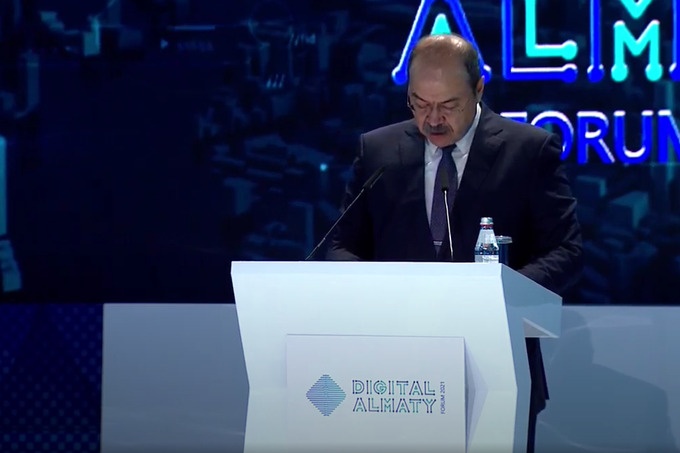Uzbekistan is ready to invest 2.5 billion US dollars by 2023 to develop its digital infrastructure, whose weaknesses were revealed by the coronavirus pandemic.
This article was originally published on Novastan’s French website on 19 February 2021.
On 5 February 2021, the prime minister of Uzbekistan, Abdulla Oripov, announced his government planned to invest 2.5 billion US dollars (£1.8 billion) in the country’s digital infrastructure by 2023, the Uzbek media outlet Gazeta.uz reports.
Want more Central Asia in your inbox? Subscribe to our newsletter here.
The goal of the investment is better digital access to public services and the development of electronic administration in the banking sector and, at a later stage, the health and agricultural sectors.
The funds will also allow for the construction of three new data centres in the cities of Tashkent, Bukhara and Kokand by 2023, which should help expand fixed telecommunications. The Uzbek government also wants to connect schools, after-school and health facilities to a fibre network.
Covid-19 has negatively affected Uzbekistan’s infrastructure
These massive investments come at a time when internet connection in Uzbekistan has been negatively affected by the coronavirus pandemic. With the first lockdown in March 2020, the Internet was slowed down by a surge in demand, as the number of users increased from 20 to 30% in a few weeks. The government was clearly caught off guard as internet speed in Uzbekistan had otherwise increased, going from an average of 10.89 Megabits per second (Mbps) in January 2019 to 25.75 in January 2020.
Internet speed has significantly decreased, especially for mobile networks. This has been noted by the Uzbekistan government, who has responded, with help from mobile operators such as Uzbektelecom, by modernising more than 302 digital stations in order to solve the issue.
Read more: In Tajikistan, government control still slows down internet
The government’s aim is for the whole country to have quicker and cheaper access to the Internet. But its position in terms of internet infrastructure remains unreliable. In fact, Uzbekistan is connected to the global network through Kazakhstan, which is itself connected via Russia. Consequently, the country depends on Russian and Kazakh providers, with the costs that implies, to connect its population.
This situation leads to rather slow connections: according to data from the Speedtest Global Index, in January 2021 Uzbekistan placed 128th out of 140 countries for fixed internet speed, and 96th out of 175 for mobile internet speed.
A digital turn under Mirziyoyev
These difficulties have not slowed down the Uzbek government’s determination to develop digital services. This has been part of the country’s plans since the start of Shavkat Mirziyoyev’s presidency in December 2016 and is included in the national strategy for development 2017-2021.
It is also the object of its own strategy since October 2020, when Mirziyoyev approved a national digital strategy. It includes connecting the entire country to the Internet at speeds of at least 10Mbps by the end of 2022, with an intermediate target of connecting tourist destinations with high speed internet by late 2021.
To make up for its lack of expertise in the field, the government also wants to train its population and normalise digital services. Last January, IT Park Uzbekistan launched a new project to train IT specialists, Future Skills Project. Overseen by the Uzbekistan Ministry of Employment, the programme is aimed at unemployed people over the age of 16.
The hope is that this initiative will increase the number of qualified IT professional and, ultimately, give Uzbekistan’s youth access to higher standards of living.
Carla Bouzon
Translated from French by Molly Arnold
For more news and analysis from Central Asia, follow us on Twitter, Facebook, Telegram, Linkedin or Instagram.
 Uzbekistan to invest in its digital infrastructure
Uzbekistan to invest in its digital infrastructure 



